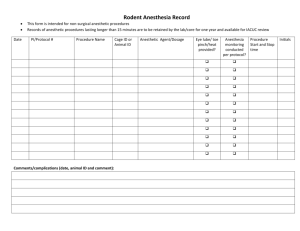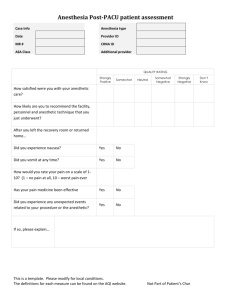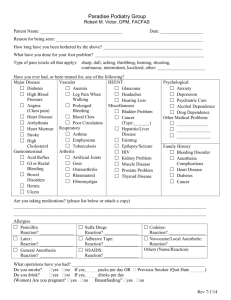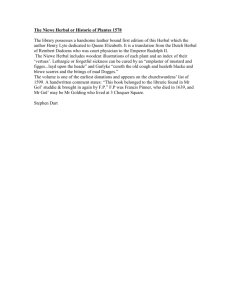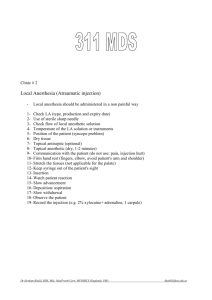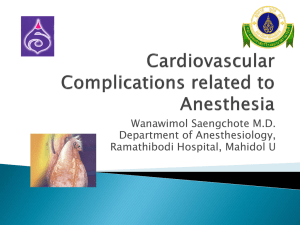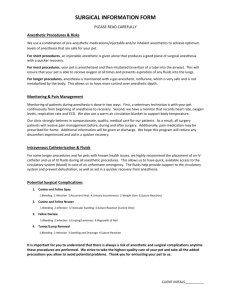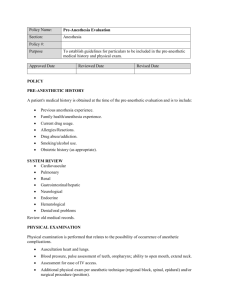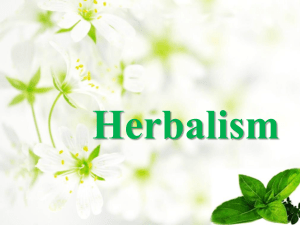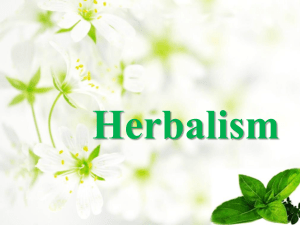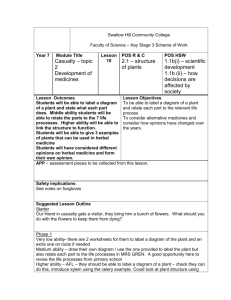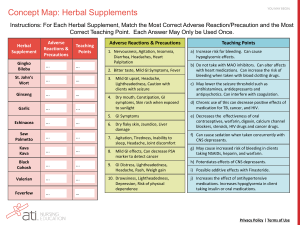HOW HERBAL PRODUCTS INCREASE SURGICAL RISK
advertisement
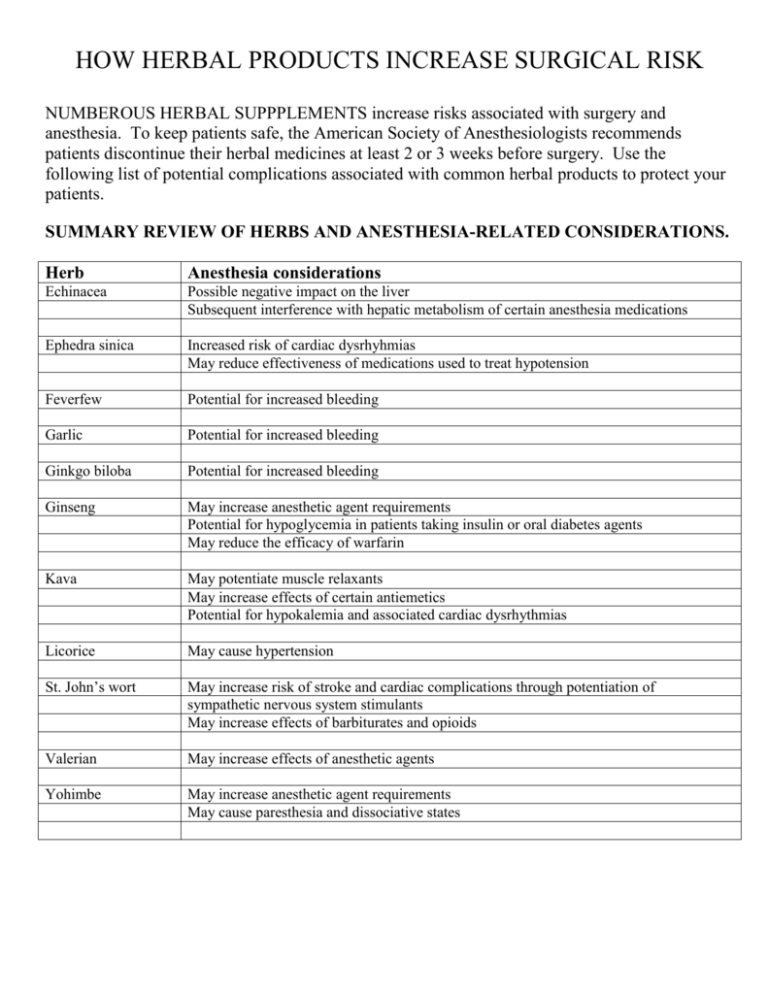
HOW HERBAL PRODUCTS INCREASE SURGICAL RISK NUMBEROUS HERBAL SUPPPLEMENTS increase risks associated with surgery and anesthesia. To keep patients safe, the American Society of Anesthesiologists recommends patients discontinue their herbal medicines at least 2 or 3 weeks before surgery. Use the following list of potential complications associated with common herbal products to protect your patients. SUMMARY REVIEW OF HERBS AND ANESTHESIA-RELATED CONSIDERATIONS. Herb Anesthesia considerations Echinacea Possible negative impact on the liver Subsequent interference with hepatic metabolism of certain anesthesia medications Ephedra sinica Increased risk of cardiac dysrhyhmias May reduce effectiveness of medications used to treat hypotension Feverfew Potential for increased bleeding Garlic Potential for increased bleeding Ginkgo biloba Potential for increased bleeding Ginseng May increase anesthetic agent requirements Potential for hypoglycemia in patients taking insulin or oral diabetes agents May reduce the efficacy of warfarin Kava May potentiate muscle relaxants May increase effects of certain antiemetics Potential for hypokalemia and associated cardiac dysrhythmias Licorice May cause hypertension St. John’s wort May increase risk of stroke and cardiac complications through potentiation of sympathetic nervous system stimulants May increase effects of barbiturates and opioids Valerian May increase effects of anesthetic agents Yohimbe May increase anesthetic agent requirements May cause paresthesia and dissociative states
